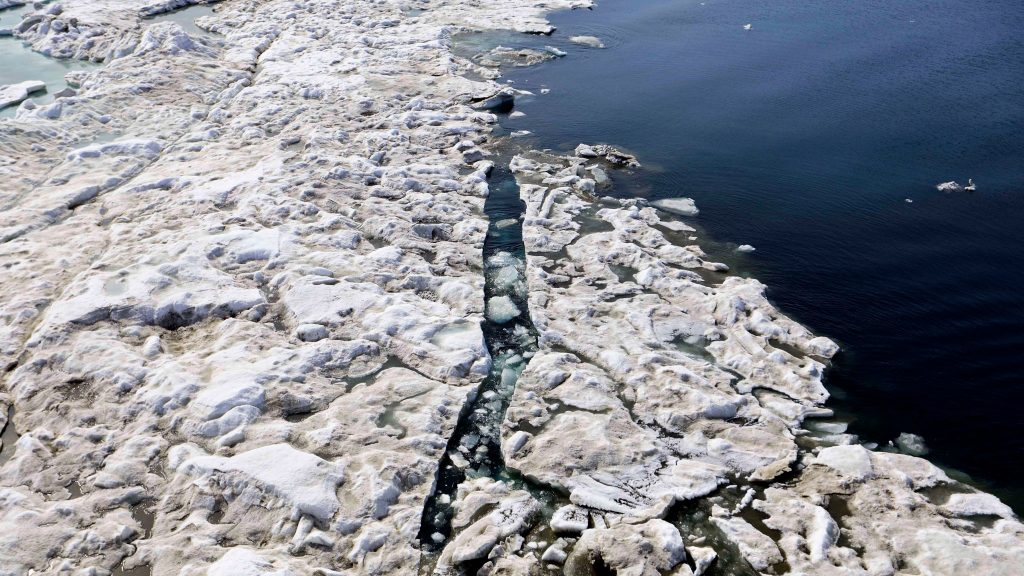U.S. to keep sharing satellite data, relief for sea ice researchers

The U.S. Department of Defense will now continue sharing key data collected by three weather satellites that help forecasters track hurricanes. Meteorologists and scientists had warned of risks to accurate and timely storm tracking without the information when officials made plans to stop providing it beyond the end of this month.
Defense officials had planned to cut off distribution of microwave data from the Defense Meteorological Satellite Program, jointly run with the National Oceanic and Atmospheric Administration, by the end of June. At the time, NOAA said the cutoff was said “to mitigate a significant cybersecurity risk” while the U.S. Navy said the program didn’t meet “information technology modernization requirements.” The discontinuation was postponed for one month.
In a notice on Wednesday, officials said there would be no interruption at all.
The Navy said in a statement that its Fleet Numerical Meteorology and Oceanography Center “had planned to phase out the data” as part of modernization efforts. “But after feedback from government partners, officials found a way to meet modernization goals while keeping the data flowing until the sensor fails or the program formally ends in September 2026.”
Storm information
The data is used by scientists, researchers and forecasters, including meteorologists at the National Hurricane Center. It gives crucial information about storms that can’t be gleaned from conventional visible or infrared satellites.
“This satellite data enables hurricane forecasters and their computer models to peer inside a hurricane’s structure, offering vital insight,” said Union of Concerned Scientists science fellow Marc Alessi. “Make no mistake: this data not only improves hurricane forecasting accuracy, but could make the difference between whether communities evacuate or not ahead of an approaching hurricane.”
Other microwave data would have been available with this cutoff, but only about half as much, experts said – increasing the chance that forecasters would miss certain aspects of storms.
A spokesperson for NOAA said the agency will continue to have access to the data for the program’s lifespan and noted that it is just one data set “in a robust suite of hurricane forecasting and modeling tools” that the National Weather Service has at its disposal to “ensure the gold-standard weather forecasting the American people deserve.”
The news had initially raised scientific eyebrows amid hurricane season, which usually peaks from mid-August to mid-October. Climate change, worsened by the burning of fossil fuels such as oil and coal, have driven storms to become more frequent, severe and deadly.
“The last-minute reprieve has hurricane forecasters breathing a sigh of relief,” said Jeff Masters, a meteorologist for Yale Climate Connections. “Loss of the microwave satellite data would have made it far more likely that timely warnings of dangerous and potentially deadly episodes of hurricane rapid intensification events being delayed by up to 12 hours.”
He added the restoration of the data is also good news for scientists tracking Arctic sea ice loss. Images and microwave satellite data can estimate how much of the ocean is covered by ice, according to NOAA.



